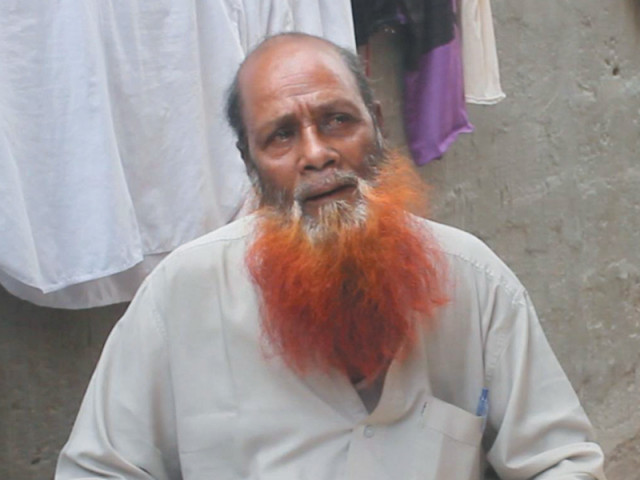Bengali immigrants in Karachi polarised over violence in Bangladesh
Older residents worry about the state of affairs while younger ones struggle for identity in Pakistan.

Syed Hussain, a Bengali immigrant from Mehran town, feels hurt by the unjust treatment of Muslims in Bangladesh. PHOTO: EXPRESS
The protests in Bangladesh sparked on February 5, when the International Crimes Tribunal sentenced Abdul Quader Molla, the assistant secretary-general of the Bangladesh Jamaat-e-Islami to life in prison after he was convicted of war crimes. Later, protesters expanded their demands to include a complete ban on Jamaat-e-Islami, along with its supporters and affiliates on grounds of being involved in genocide and crimes against humanity. A counter-protest was launched by the Jamaat-e-Islami, demanding the release of its accused and convicted members.
The protests turned violent on February 28 after after the death sentence of Delwar Hossain Sayidee, a leader of Bangladesh Jamaat-e-Islami, who was convicted for murder, looting, rape, arson and forced conversion of non-Muslims. Till date, nearly 800 people have been injured and over 100 people have lost their lives in the following clashes, including online activists and bloggers.
The prevailing violence in Bangladesh is a source of pain for Murtaza Mashooqullah, a private businessman who migrated to Karachi from Dhaka in 1969. “Bangladesh has progressed so much over the years, the economy is much stronger, and the literacy level is much higher,” said Mashooqullah. “It is sad to see such a thriving country suffer because of past events. Over time one has to learn to forget and forgive.”
On the other hand, Brigadier (retd) Ayaz Peer Mohammed, also of Bengali origin views the protests as a sign of secularism and progress for the Bengali society in the long run. Supporters of the protests in Bangladesh have welcomed the conviction and called for a complete isolation of religious parties from politics. “I wish we had the guts to do the same thing over here,” he said.

Abdul Aziz, a Bengali immigrant, currently residing in Bilal Town, Korangi, views the current violence in Bangladesh as a testimony to the mistreatment of Bengali Muslims in both Pakistan and Bangladesh. “Those of us who stayed in Bangladesh and helped the Pakistani army are being imprisoned and killed by the government there. And the Pakistani government does not recognise those who came here either.”
Syed Hussain, a resident of Mehran Town in Korangi, who migrated to Karachi in 1969, also shares the same opinion. “We might have left Bangladesh, but if our Muslim brothers are being treated unjustly anywhere, it hurts us,” he said.
The residents noticed, nevertheless, that the Pakistani government is silent over the issue. Aziz and Hussain believed that the Pakistani government had a responsibility to step up and support the Muslims who had helped the Pakistani army in 1971, others felt that the government owed an apology to the people of Bangladesh for the events of 1971.
“It’s strange that we are bothered by the atrocities in Palestine and Kashmir but are oblivious to a place that was once a part of us,” said Mashooqullah.
Bahram Hussain, a Karachi-based private businessman of Bengali origin, also believes that Pakistan needs to apologise but it will have to come from a democratic government, rather than a military one.
For the second and third generation Bengalis, born in Pakistan, the conflict in Bangladesh does not hold much meaning. “We are more concerned with the problems that we face here in Pakistan,” said Mohammed Noor, a day labourer, whose parents belonged to Bangladesh. “We can’t apply for most of the jobs or vote because we don’t have an identity card and we are constantly harassed by the authorities here for being Bengalis.”
Published in The Express Tribune, April 3rd, 2013.



















COMMENTS
Comments are moderated and generally will be posted if they are on-topic and not abusive.
For more information, please see our Comments FAQ